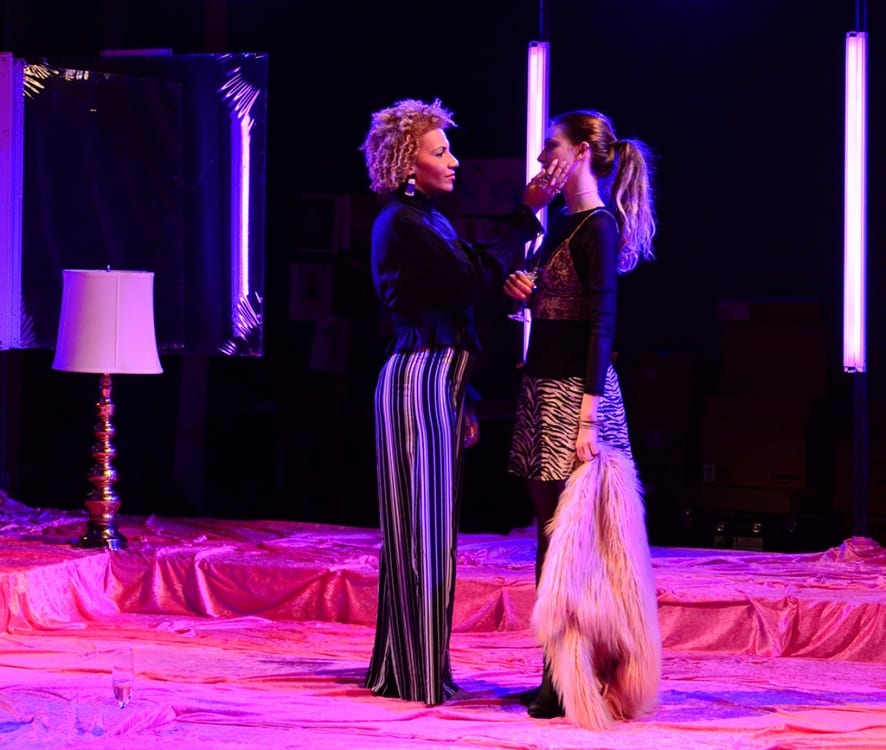In this English-language translation of Rainer Werner Fassbinder’s German play (and later, film), we meet Petra Von Kant, a now successful fashion designer with a past riddled with abuse and despair. She has been taught that love is a fiction in this life, and a lie men usually tell to women in order to perpetuate the patriarchy. She now lives only for herself, intent on seizing as much success as she can and enjoying the glamour that comes with riches. She is challenged when a young model introduces herself, and the love affair between the two upends Petra’s certainties. It has the makings of a classic tragic love story, but it is executed with violent pyrotechnics and over-indulgence that keeps the audience at a certain distance throughout.
The journey of Petra is one with the potential for fantastic admiration and painful sympathy: she is at once steadfast, and then willing to give everything for someone she feels a passion for at long last, despite her dreadful previous marriage, and almost turns over a new leaf by the play’s end. Petra verbally abuses her assistant, and yet her ability to seize opportunity is enviable. In a drama so epically written as this one, it is nearly impossible to admire a protagonist that is not constantly stirring with intense desire for power, love, or (perhaps more accurately) the necessary return of love. The lead actress’ portrayal of Petra in this production initially strikes us as almost too certain, as if there is no way she can possible lose. As she casually sips her mimosa, makes deals over the phone, and dances to and for herself, we see not a woman lavishing in her earned luxuries, but a woman lost in the glamour of her ambition. As she progresses into savagery when she reaches a breaking point in the relationship with her lover, the audience is very much at unease, confused how to respond to the outlandish behavior, when we have no real sense of her intense desire. We are instead blown back by an outburst that is not grounded in truth. Her supporting cast plays out more as stereotypes-with-a-vengeance than fleshed-out human beings, and it becomes difficult to invest emotionally.
The entire production exists with little sense of backstage or off-stage, with set pieces and portraits on the stage’s perimeter that round out Petra’s home outside the lush living room where the action takes place. The main stage is coated in a hot pink cover, hilled with pillows underneath. It is very much Petra’s playground, and we are initially excited to play in her world with her. It is only when a particular animal makes an appearance near the play’s end that we understand the dilemma of Petra through the metaphor, and what she possible must be going through. Until that moment, the audience can expect to be lulled by the play’s lavishness and jolted by its hysteria.

